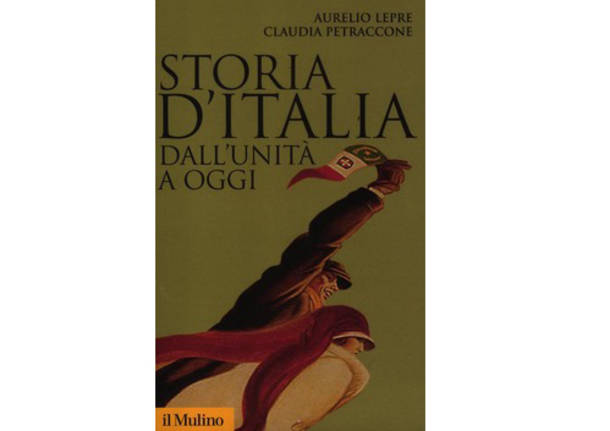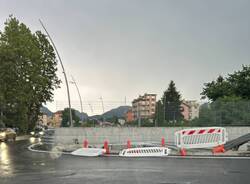History of Italy from the Unification to the present day: nineteen chapters to tell Italian history
Edited by the publishing company Il Mulino, the volume retraces the most important moments from 1861 to the end of the 20th century.

“History of Italy from the Unification to the present day”
Aurelio Lepre, Claudia Petraccone, pp. 436. Publishing Company Il Mulino – 2008
The volume, which is not very recent, but it is well-written and in the editorial pocket format, robust and flexible, represents maybe the intellectual legacy of the author Aurelio Lepre (1930-2014) who was lecturer of Contemporary History at the University Federico II in Naples, but was also collaborator of the newspaper “l’Unità” and of the magazine “Rinascita” founded by Palmiro Togliatti.
The first volume of the book, from 1861 to the end of the 20th century, was written and curated by Claudia Petraccone, who was a student and continuer of the Lepre’s work at the Neapolitan university.
The text consists of nineteen chapters written in a simple and coherent language, suitable for any reader, that has the tiniest interest in the specific topic of Italian history from 1861 to the end of the 20th century.
Among the most interesting pages there are those regarding the so-called Third Independence War of 1861, when Italy tried and somehow succeeded in entering the war between Prussia and Austria, through a mediation by France. The reign of Savoy tried to delay in order not to openly take sides, recommended by France, but then, under Austrian pressure and after consultation with Napoleon III, in April it signed an agreement with Prussia that provided military help in case of war with Austria. In case of Prussian victory, this deal would have guaranteed Italy the annexation of Veneto and the Province of Mantua. Then, Vienna, always with the mediation of Paris, suggested to cede Veneto to Italy if it broke the alliance with Prussia. Instead, there was a secret agreement between France and Austria that reserved Napoleon not to intervene and to stop Italy from intervening in exchange for the cession of Veneto, which would then have been delivered to Italy after a compensation and on the basis of a recognition of the temporal power of the Pope. The war broke out in June 1866, but the disastrous Italian military conduct led, despite the Prussian victory and the agreements in April, to an annexation of Veneto to Italy on the basis of an expected Franco-Austrian agreement. This was a striking example, the first of a long series, of the Italian subordination in foreign policy and of the effective political power of the pontiffs over the whole peninsula.
Another interesting page but of more recent history is the one concerning the murder of Giacomo Matteotti, about which Lepre highlights the responsibilities of Vittorio Emanuele III in the tough speech that Mussolini wanted to make on 3 January 1925. The episode shows the political skill and cynicism of the Predappio dictator, who was able to exploit to his own advantage both the weaknesses of a Royal House that in his opinion did not fully exercise its power and, at the same, the fuelled but unfounded fears of a possible Bolshevik style revolution in Italy.
The Duce heard immediately and in detail about the murder of the socialist deputy and was terrified because this fact could potentially destroy everything he had managed to build up politically up to that moment: Matteotti had disappeared on 10 June 1924, but his body was found on 16 August.
According to Lepre, however, Mussolini had already shown a new confidence on 16 June because he had evidently been supported by talks with the Crown; until the end of the year, however, he was committed to dissimulating and giving the image of himself as a weak man, exhausted and on the point of giving in to the great indignation that this serious act of bloodshed had caused in the parties and public opinion. In reality, he already knew that the sovereign would protect him, going so far as to demand the expulsion of the deputies who had withdrawn for the Aventine protest. Vittorio Emanuele did not realise that this gesture would have crippled him once and for all: after the speech of 3 January, in fact, the parties essentially disappeared from the national political scene and the country ended up definitively in the grip of dictatorship.
Translated by Sara Mentasti, Elisa Cairone, Vittoria Bonanomi, Alessia Tropolini
Reviewed by Prof. Robert Clarke
La community di VareseNews
Loro ne fanno già parte
Ultimi commenti
Emanuele Zanetti su Motociclista di Ferno ucciso da un orso in Romania
GrandeFratello su Superate le 700 firme per la petizione sul recupero del Grand Hotel Campo dei Fiori di Varese
Felice su Motociclista di Ferno ucciso da un orso in Romania
Stefano64 su Neil Young torna dopo l'enorme successo di Harvest: ma non è il disco che tutti si aspettano
Alessandro Zanzi su Superate le 700 firme per la petizione sul recupero del Grand Hotel Campo dei Fiori di Varese
Felice su La bibliocabina, la panchina e il cane che fa pipì. A Fagnano Olona scoppia la polemica
















Accedi o registrati per commentare questo articolo.
L'email è richiesta ma non verrà mostrata ai visitatori. Il contenuto di questo commento esprime il pensiero dell'autore e non rappresenta la linea editoriale di VareseNews.it, che rimane autonoma e indipendente. I messaggi inclusi nei commenti non sono testi giornalistici, ma post inviati dai singoli lettori che possono essere automaticamente pubblicati senza filtro preventivo. I commenti che includano uno o più link a siti esterni verranno rimossi in automatico dal sistema.